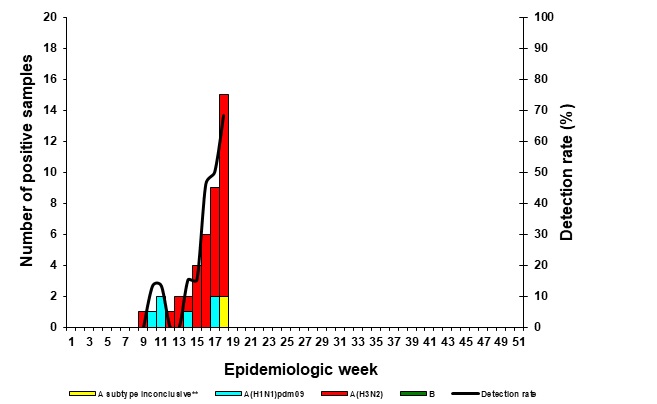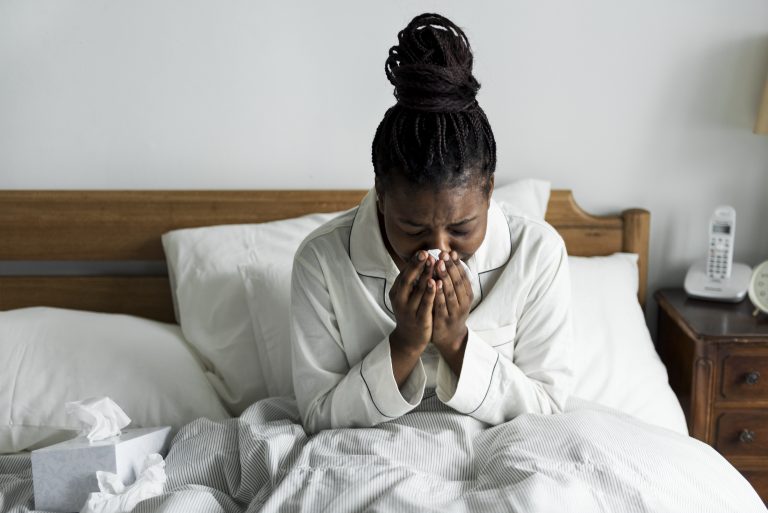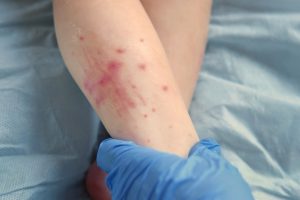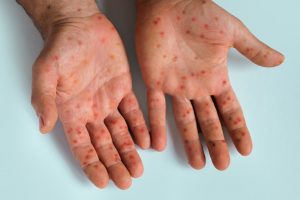The 2019 influenza season has started. Every year during winter months, May to August, South Africa experiences an increase in influenza circulation called the influenza season. During this time, we see a marked increase in cases of influenza in the community as well as people seeking care for influenza-like illness at health care facilities.
The influenza season is considered to have started when the influenza detections in the influenza-like illness surveillance sentinel surveillance programme (Viral Watch) rises above the seasonal threshold, as determined by the Moving Epidemic Method (a sequential analysis using the R Language), and this increase is sustained. The seasonal threshold was reached in week 16 (the week ending 21 April).
While there have been low levels of influenza circulating since March, the number of specimens testing positive for influenza in all three surveillance programmes (influenza-like illness in public health and private practitioners and pneumonia surveillance), has increased since mid-April. To date the majority 66/88 (75%) of influenza positive samples for this season, detected by surveillance programmes, have been identified as influenza A(H3N2).
The latest influenza surveillance report
Influenza vaccination
Influenza vaccination, which provides protection against circulating strains of influenza each season, remains the most effective measure to prevent illness and possibly fatal outcomes. Individuals at increased risk of severe influenza disease should be prioritized to receive influenza vaccine. These groups include, among others, pregnant women, HIV infected adults, the elderly and those vulnerable due to pre-existing illnesses or risk factors.
Vaccines should be given sufficiently early to provide protection for the influenza season, though it is never too late to vaccinate. A protective antibody response takes about 2 weeks to develop. The 2019 influenza vaccine has been available in South Africa since the beginning of April and it can be accessed at local clinics and private providers (pharmacies and private practitioners). Clinicians are encouraged to vaccinate individuals in the groups that are targeted for influenza vaccination as soon as possible.
NICD influenza recommendations for diagnosis, prevention, management and public health response
Number of positive samples by influenza types and subtypes and detection rate* from the Viral Watch programme, South Africa, 2019
 * Only reported for weeks with >10 specimens submitted.
* Only reported for weeks with >10 specimens submitted.





